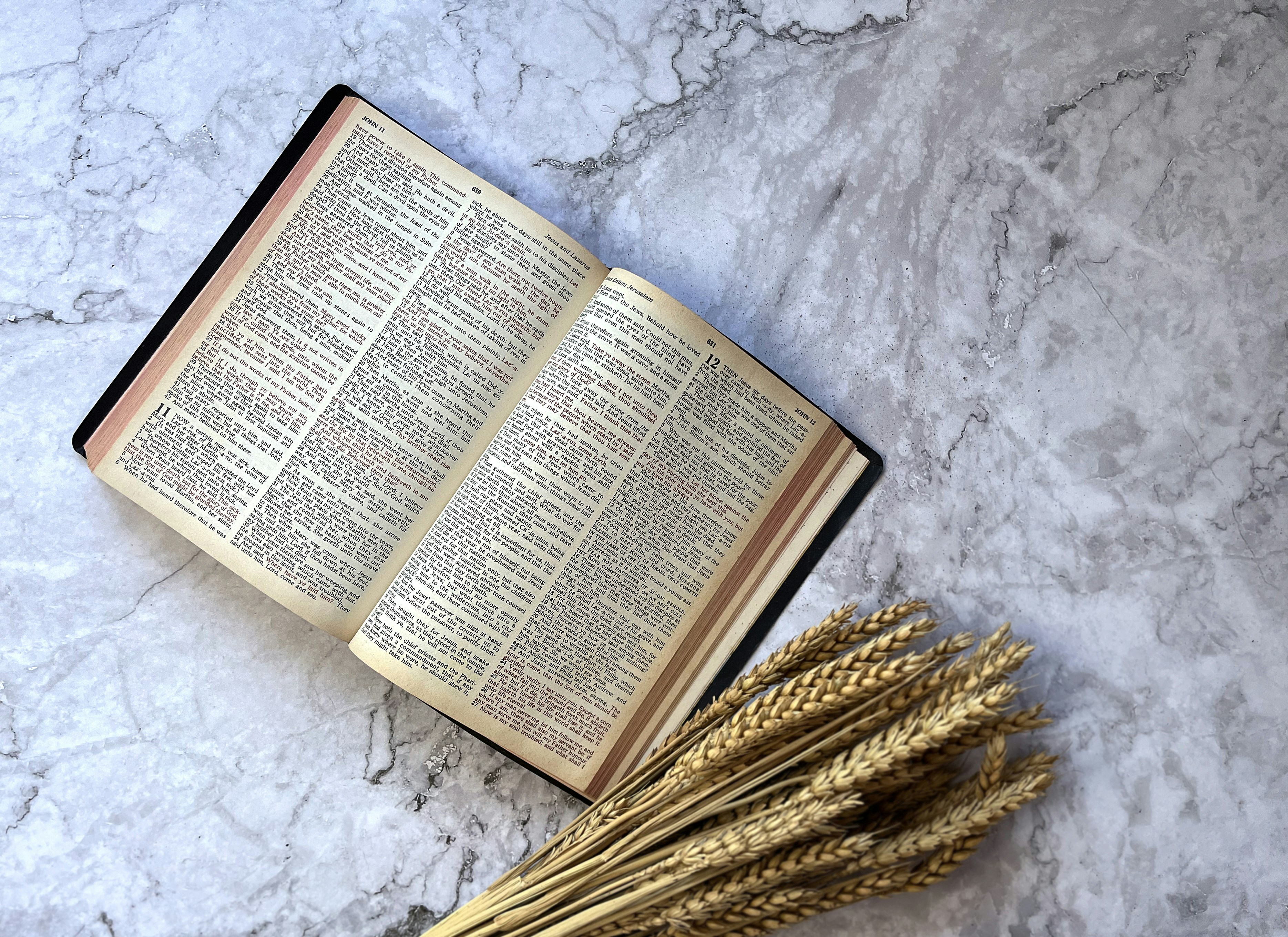In this parable, Jesus presents us with a very different view of weeds. If I were a master gardener, which I am not, my main concern at all times would be weeds. In today’s Gospel Jesus says that it is better to leave the weeds alone and let the wheat grow right next to them. Isn’t that like life today? Each day, we are dealing with all the weeds surrounding us. How do we handle them? Do we trample over them or push them out of the way, or do we go about our business as if they didn’t exist?
We could consider the wheat as the Word of God that is intertwined with our daily life to strengthen us and help us to grow closer to God. He nourishes us with His spiritual food. He is living water for our thirst. From the grain to its fullness, wheat is nourished and strengthened. It doesn’t let the weeds take over, but thrives and maintains its purpose.
Pope Francis tells us: “Cultivating and caring for creation is an instruction of God which he gave not only at the beginning of history, but has also given to each one of us; it is part of his plan; it means making the world increase with responsibility, transforming it so that it may be a garden, an inhabitable place for us all. ” (General Audience, June 5, 2013).
But what about those weeds? Aren’t they a nuisance? Let’s liken them to people. Have you encountered individuals who could be described as weeds? Could we be described that way? Weeds are annoying, hinder you from flourishing in life, try to block your true path, and even attempt to take over. We often find ourselves in weedy situations. To keep the weeds away, we must rely on our faith.
Sts. Anne and Joachim, whose feast we celebrate today, strengthened Mary through the Word of God. Through the psalms, prayer, and spiritual nourishment provided by her parents, Mary grew in faith. We, too, must stay close to God in all we do to remain strong and focused on our life’s mission. We can pray to God to manage the weeds in our lives because it is not our role to try to remove the weeds but rather to surrender them to God.
God sent His son Jesus as our wheat, our Bread of Life, our spiritual nourishment to strengthen us and help us grow. What will we decide to be, wheat or weeds?
En esta parábola, Jesús nos presenta una visión muy diferente de la cizaña. Si yo fuera un jardinero experto, que no lo soy, mi principal preocupación en todo momento sería la cizaña. En el Evangelio de hoy, Jesús dice que es mejor dejar la cizaña en paz y dejar que el trigo crezca junto a ella. ¿No es así como vivimos hoy? Cada día, nos enfrentamos a toda la cizaña que nos rodea. ¿Cómo la manejamos? ¿La pisoteamos o la apartamos del camino, o nos dedicamos a nuestras cosas como si no existiera?
Podríamos considerar el trigo como la Palabra de Dios que se entrelaza con nuestra vida diaria para fortalecernos y ayudarnos a acercarnos a Dios. Nos nutre con su alimento espiritual. Es agua viva que sacia nuestra sed. Desde el grano hasta su plenitud, el trigo se nutre y se fortalece. No permite que la cizaña se apodere de él, sino que prospera y mantiene su propósito.
El Papa Francisco nos dice: “Cultivar y custodiar la creación es una indicación de Dios dada no sólo al inicio de la historia, sino a cada uno de nosotros; es parte de su proyecto; quiere decir hacer crecer el mundo con responsabilidad, transformarlo para que sea un jardín, un lugar habitable para todos.” (Audiencia general, 5 de junio de 2013).
Pero, ¿qué pasa con esa cizaña? ¿No es una molestia? Comparémosla con las personas. ¿Has conocido a personas que podrían ser descritas como cizañas? ¿Podríamos ser descritos así nosotros? Las cizañas son molestas, impiden que florezcas en la vida, intentan bloquear tu verdadero camino e incluso intentan tomar el control. A menudo nos encontramos en situaciones de cizañas. Para mantenerlas alejadas, debemos confiar en la fe.
Los santos Ana y Joaquín, cuya fiesta celebramos hoy, fortalecieron a María a través de la Palabra de Dios. A través de los salmos, la oración y el alimento espiritual proporcionado por sus padres, María creció en la fe. Nosotros también debemos permanecer cerca de Dios en todo lo que hacemos para permanecer fuertes y centrados en la misión de nuestra vida. Podemos pedirle a Dios que controle las cizañas de nuestra vida, porque no es nuestro papel tratar de eliminarlas, sino más bien entregarlas a Dios.
Dios envió a su hijo Jesús como nuestro trigo, nuestro Pan de Vida, nuestro alimento espiritual para fortalecernos y ayudarnos a crecer. ¿Cuál escogemos ser, trigo o cizaña?

Marti Garcia’s passions are her retired life and growing deeper in her Catholic faith. Marti is a Sacristan/EM, facilitates small groups, and assists as a First Communion Catechist for parents. Being a parent educator and writer for 35 years, she recently published a children’s chapter book on Amazon, The Ladybugs. You can find her at her blog: MartiGarcia.org, or thewaterisshallow.com, or her cohost podcast, findingacommonthread.com, which is coming soon.
Feature Image Credit: matthew6910, unsplash.com/photos/an-open-book-sitting-on-top-of-a-table-t9A4zEPYVLc
The views and opinions expressed in the Inspiration Daily blog are solely those of the original authors and contributors. These views and opinions do not necessarily represent those of Diocesan, the Diocesan staff, or other contributors to this blog.

